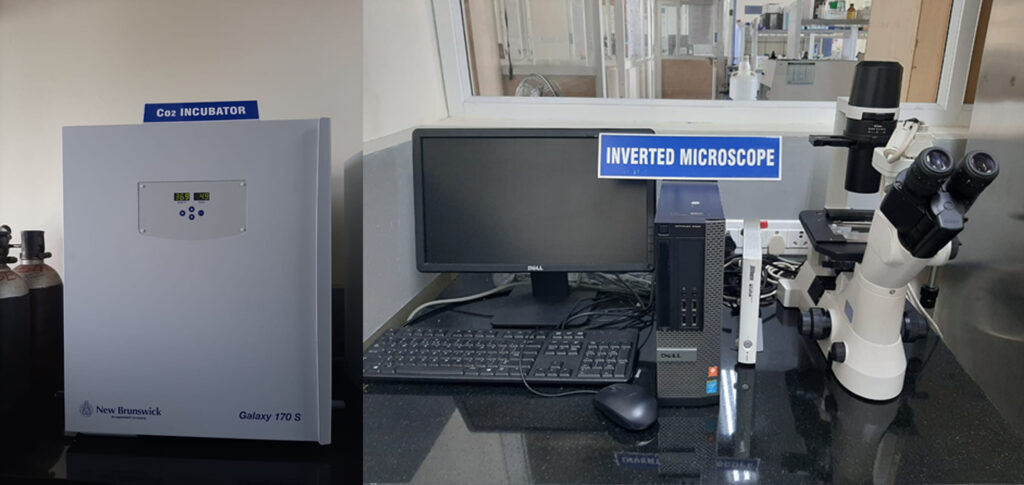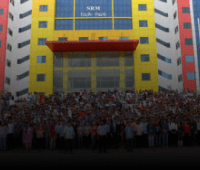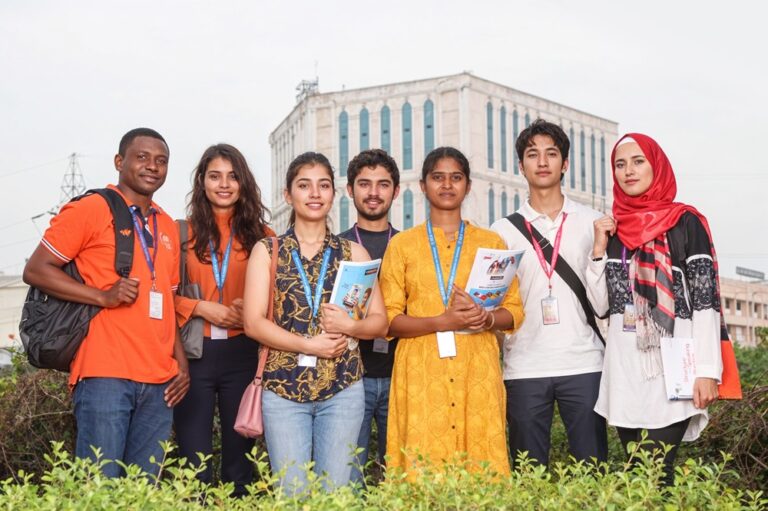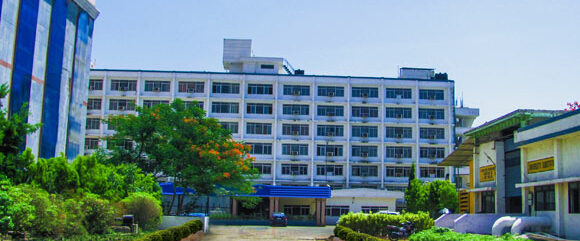


Cell Signaling Laboratory
- Home
- Faculty of Engineering & Technology
- Department of Biotechnology
- Cell Signaling Laboratory
Cell Signaling Laboratory
Diabetes is a metabolic disorder and becomes a major cause of morbidity and mortality as it is the fourth leading cause of disease-related death.
Dr. Ramkumar’s research group works on experimental diabetes research using high-end molecular and cellular biology tools and optical imaging. The pathogenic processes involving diabetes range from autoimmune destruction of pancreatic β-cells with consequent insulin deficiency to abnormalities that result in resistance to insulin action. The major contributing factors for excessive β-cell death include cytokine stress, ER stress, and oxidative stress-mediated mitochondrial damage, which creates an imbalance in redox homeostasis. Yet, β-cells have evolved adaptive mechanisms to endure a wide range of stress conditions to safeguard their potential functions. We extended our research on the detailed steps of various cell signalling pathways in response to modulators for diabetes management. We are developing molecular imaging techniques for screening signalling modulators and also studying the molecular mechanism of its impact β-cell dysfunction in diabetes.

Specifications
- Infinte Pro ELISA plate Reader (Tecan)
- Luminometer (Promega)
- GBox Gel Documentation System (Syngene)
- Conventional PCR (BioRad)
- Small animal imaging system (Fusion)
- -80 Deep Freezer (Panasonic)
- -20 Deep Freezer (Koldkraft)
- Inverted microscope (Nikon)
- CO2 Incubator (Eppendorf)
- Western blotting set up (BioRad)
- Biosaftey cabinet for mammlian cell culture (Labman India)
- Cooling centrifuge (Remi)
- Micro-Ultra centrifuge (Thermoscientific)
- Orbital shaker with incubator (Orbiteck)
Ongoing research projects
Study on epigenetic modulation of Nrf2 by small molecules for diabetic foot ulcer (ICMR)-April 2020 to March 2023
Completed research projects
- Therapeutic potential of Nrf2 activators on endoplasmic reticulum-induced endothelial dysfunction in diabetes (SERB) – Oct 2017 to Mar 2021
- Role of Nuclear factor erythroid 2-related factor 2 (Nrf2) on wound healing in diabetic foot ulcers during Hyperbaric Oxygen Therapy (SRM IST) – 2018 to 2019
- Study on the effect of Gymnema montanum on endothelial dysfunction in experimental diabetes (ICMR) – Jun 2015 to Feb 2019
- A rapid non-invasive urinary test for the detection of obstructive uropathy (DBT:NIH) – Nov 2015–Oct 2017
- Nuclear factor erythroid 2-related factor 2 (Nrf2) activators on the survival of pancreatic islet grafts in type 1 diabetic mice (DBT) – May 2014 to Apr 2017
- A cell-based system for high-throughput screening of Nrf2 activators and its role in protecting pancreatic β-cell apoptosis (DST) – Aug 2013 to Jul 2016
Profile
In both type 1 and type 2 diabetes, the severe pathogenesis causes microvascular complications such as nephropathy, retinopathy, and neuropathy, as well as macrovascular complications such as cardiovascular disease, heart attacks, and stroke. Under hyperglycemia, activation of different signalling mechanisms is involved in the pathogenesis of diabetic complications. It is necessary to understand the cellular and molecular pathways in diabetic complications that cause damage to the secondary systems of the body. In the past decade, understanding these mechanisms has increased tremendously, and various molecules have been exploited as novel therapeutic targets for diabetic complications as a better therapeutic approach.
Contact Persons
Dr. K. M. Ramkumar
Lab In-charge
ramkumak@srmist.edu.in

Block Name: Sir C.V. Raman Research Park Room no: RRP212 Open Door Access Time : 09.00 am to 06.00 pm















